You are here: American University School of Public Affairs Center for Environmental Policy Inflation Reduction Act Report - Speakers
Contact Us
Joe Bonfiglio, Executive Director, US Region, EDF
 As Executive Director of EDF’s US Region, Joe Bonfiglio leads a highly experienced, multidisciplinary team focused on stabilizing the climate, building thriving communities and sustaining human health across the United States. Utilizing his experience in government, politics and nonprofits, he works to scale, align and leverage the work of EDF and the organization's many allies to secure high-impact and lasting climate and environmental progress.
As Executive Director of EDF’s US Region, Joe Bonfiglio leads a highly experienced, multidisciplinary team focused on stabilizing the climate, building thriving communities and sustaining human health across the United States. Utilizing his experience in government, politics and nonprofits, he works to scale, align and leverage the work of EDF and the organization's many allies to secure high-impact and lasting climate and environmental progress.
Bonfiglio joined EDF eleven years ago, most recently serving as President of EDF Action, Environmental Defense Fund’s 501(c)4 sister organization, from 2017-2022. Under Bonfiglio’s leadership, EDF Action evolved into an advocacy and political force capable of delivering policy change and influencing elections at every level of government. In just the last few years, EDF Action successfully blocked some of the worst policies and personnel appointments pushed by the Trump Administration, helped shape water, energy and climate resilience policy in key states and delivered billions of dollars in climate change investments in the 2021 bipartisan federal infrastructure bill.
Before joining the green community, he spent a decade in electoral politics and government – much of that time on Capitol Hill serving in a variety of roles: Deputy Staff Director for the U.S. Senate Committee on Aging under Senator Herb Kohl of Wisconsin, Chief of Staff for Congressman Charles Melancon of Louisiana, and as Communications Director for Congressman Brad Miller of North Carolina.
Bonfiglio received his Bachelor of Arts from the University of North Carolina at Chapel Hill and lives with his wife and son in Alexandria, Virginia.
Margot Brown, Vice President, Justice and Equity, EDF
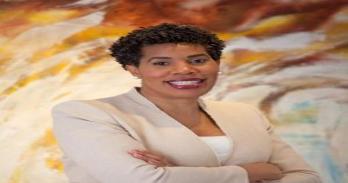 Margot has more than 20 years’ experience with environmental justice and equity in underserved communities. In addition to serving communities in Louisiana’s industrial corridor, she established national partnerships to address children’s environmental health disparities at the US Environmental Protection Agency. Margot’s recent environmental justice initiatives including working with Louisiana’s first displaced climate related community and efforts to formally conserve and curate the cultural practices of the Isle de Jean Charles Band of Biloxi-Chitimacha-Choctaw Tribe.
Margot has more than 20 years’ experience with environmental justice and equity in underserved communities. In addition to serving communities in Louisiana’s industrial corridor, she established national partnerships to address children’s environmental health disparities at the US Environmental Protection Agency. Margot’s recent environmental justice initiatives including working with Louisiana’s first displaced climate related community and efforts to formally conserve and curate the cultural practices of the Isle de Jean Charles Band of Biloxi-Chitimacha-Choctaw Tribe.
Margot holds a Doctorate in Environmental Health Science and a Masters in Public Health from Tulane University.
Margot Brown's presentation is available here.
Kelly Crawford, Senior Advisor for Energy Equity and Environmental Justice, U.S. Department of Energy
 Kelly Crawford is Senior Advisor of Energy Equity and Environmental Justice at the U.S. Department of Energy’s Office of Energy Efficiency and Renewable Energy. Crawford is an award-winning subject matter expert with more than a decade of technical experience in environmental science and engineering, energy policy, climate change, emergency management and response, and environmental justice and equity. Before joining EERE, Crawford worked at the Department of Energy and Environment in Washington, D.C. as Associate Director of the Air Quality Division and State Air pollution control officer. In 2019, she assumed leadership of the department’s equity committee, where she developed and implemented Racial Equity Framework, built a Racial Equity Impact Tool, and conducted Environmental Justice and Racial Equity training within the department.
Kelly Crawford is Senior Advisor of Energy Equity and Environmental Justice at the U.S. Department of Energy’s Office of Energy Efficiency and Renewable Energy. Crawford is an award-winning subject matter expert with more than a decade of technical experience in environmental science and engineering, energy policy, climate change, emergency management and response, and environmental justice and equity. Before joining EERE, Crawford worked at the Department of Energy and Environment in Washington, D.C. as Associate Director of the Air Quality Division and State Air pollution control officer. In 2019, she assumed leadership of the department’s equity committee, where she developed and implemented Racial Equity Framework, built a Racial Equity Impact Tool, and conducted Environmental Justice and Racial Equity training within the department.
Kelly Crawford's presentation is available here.
Christina DeConcini, Director of Government Affairs, World Resources Institute
 Christina DeConcini is World Resources Institute’s Director of Government Affairs. Christina is an attorney and advocate and oversees WRI’s legislative work and strategy on climate change and energy issues, engagement with the US Administration and corporate partners on these issues. Christina speaks on these issues in a number of forums. Prior to joining WRI in September 2007, Christina spent 20 years representing and advocating for the rights of immigrants and refugees, serving as the as the Director of Policy and Advocacy in several national organizations, seeking to change federal immigration laws, provide representation to indigent immigrants, refugees and asylum seekers and improve conditions of detention for immigrants. Christina has written and spoken frequently on issues related to US climate policy, immigration and refugee policies, has taught immigration law, served on a number of boards and been recognized for her work in both the immigration and climate field.
Christina DeConcini is World Resources Institute’s Director of Government Affairs. Christina is an attorney and advocate and oversees WRI’s legislative work and strategy on climate change and energy issues, engagement with the US Administration and corporate partners on these issues. Christina speaks on these issues in a number of forums. Prior to joining WRI in September 2007, Christina spent 20 years representing and advocating for the rights of immigrants and refugees, serving as the as the Director of Policy and Advocacy in several national organizations, seeking to change federal immigration laws, provide representation to indigent immigrants, refugees and asylum seekers and improve conditions of detention for immigrants. Christina has written and spoken frequently on issues related to US climate policy, immigration and refugee policies, has taught immigration law, served on a number of boards and been recognized for her work in both the immigration and climate field.
Christina DeConcini's presentation is available here.
Todd Eisenstadt, Professor, Department of Government; Research Director, Center for Environmental Policy, School of Public Affairs, American University
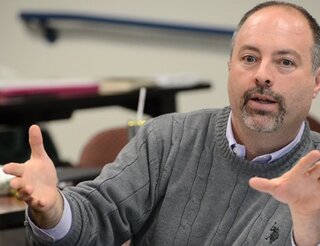 Todd A. Eisenstadt serves as research director of the Center for Environmental Policy (CEP), where he organized this webinar series. He has worked on six continents, publishing multiple award-winning books and dozens of articles on climate change and environmental policy, and political development more broadly. He recently co-authored Climate Change, Science, and the Politics of Shared Sacrifice (Oxford University Press 2022) and has written extensively on climate finance and adaptation in the developing world (conducting national surveys in Bangladesh, Ecuador, and currently in Guatemala), and has served as a principal investigator of World Bank and National Science Foundation grants. He is also Professor of Government at American University’s School of Public Affairs and organizer of a current CEP webinar series “A Sectoral Approach to Mitigation(alternative Tuesdays through May).”
Todd A. Eisenstadt serves as research director of the Center for Environmental Policy (CEP), where he organized this webinar series. He has worked on six continents, publishing multiple award-winning books and dozens of articles on climate change and environmental policy, and political development more broadly. He recently co-authored Climate Change, Science, and the Politics of Shared Sacrifice (Oxford University Press 2022) and has written extensively on climate finance and adaptation in the developing world (conducting national surveys in Bangladesh, Ecuador, and currently in Guatemala), and has served as a principal investigator of World Bank and National Science Foundation grants. He is also Professor of Government at American University’s School of Public Affairs and organizer of a current CEP webinar series “A Sectoral Approach to Mitigation(alternative Tuesdays through May).”
Daniel J. Fiorino, Director, Center for Environmental Policy, American University
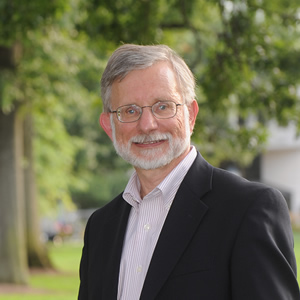 Daniel J. Fiorino s the founding Director of the Center for Environmental Policy and Distinguished Executive in Residence in the School of Public Affairs at American University. A faculty member in the Department of Public Administration and Policy, he teaches environmental policy, energy and climate change, environmental sustainability, and public management. Dan is the author or co-author of seven books and over fifty articles and book chapters. His 2006 book, The New Environmental Regulation, won the Brownlow Award of the National Academy of Public Administration (NAPA) for “excellence in public administration literature” in 2007. Altogether his publications have received nine national and international awards from the American Society for Public Administration, Policy Studies Organization, Academy of Management, and NAPA. Dan joined American University in 2009 after a career at the U.S. Environmental Protection Agency (EPA). In 2013, he created the William K. Reilly Fund for Environmental Governance and Leadership within the Center for Environmental Policy. Dan is an elected Fellow of the National Academy of Public Administration.
Daniel J. Fiorino s the founding Director of the Center for Environmental Policy and Distinguished Executive in Residence in the School of Public Affairs at American University. A faculty member in the Department of Public Administration and Policy, he teaches environmental policy, energy and climate change, environmental sustainability, and public management. Dan is the author or co-author of seven books and over fifty articles and book chapters. His 2006 book, The New Environmental Regulation, won the Brownlow Award of the National Academy of Public Administration (NAPA) for “excellence in public administration literature” in 2007. Altogether his publications have received nine national and international awards from the American Society for Public Administration, Policy Studies Organization, Academy of Management, and NAPA. Dan joined American University in 2009 after a career at the U.S. Environmental Protection Agency (EPA). In 2013, he created the William K. Reilly Fund for Environmental Governance and Leadership within the Center for Environmental Policy. Dan is an elected Fellow of the National Academy of Public Administration.
Mercedes García Pérez, Head of Global Issues and Innovation, Delegation of the European Union to the USA
 Mercedes García Pérez is the head of global issues and innovation at the Delegation of the European Union to the USA. Her office represents the EU in the areas of climate, energy, environment, research and innovation, space, and public health.
Mercedes García Pérez is the head of global issues and innovation at the Delegation of the European Union to the USA. Her office represents the EU in the areas of climate, energy, environment, research and innovation, space, and public health.
García Pérez has outstanding experience in the area of EU foreign policy and security strategy. She was the head of division for human rights in the European External Action Service until August 2018, leading the formulation of the EU’s human rights policy and guidelines applied worldwide. She conducted human rights dialogues with third countries, spearheaded EU efforts to support the International Criminal Court, advocated relentlessly in support of human rights defenders and initiated new human rights guidelines in the area of water. From 2012 to 2016, she was the head of operations in the Civilian Planning and Conduct Capability (CPCC), where she led the conduct of 10 EU civilian operations on three continents. In this capacity she oversaw the creation of the Kosovo Specialist Chambers in the Hague, with a mandate over crimes against humanity and war crimes.
A lawyer by training, she practiced EU competition and trade law in Brussels from 1998 to 2002. She was a member of the Academic Council and visiting scholar at the Institut Supérieur de Management Public et Politique in Paris until 2011.
García Pérez is a visual artist whose current practice focuses on documenting life and our relation to the environment. She holds an LLM in European law from the College of Europe in Bruges, Belgium, and two degrees in law and literature from Universidad Complutense, Madrid, Spain.
John Lach, Dean, School of Engineering and Applied Science, George Washington University
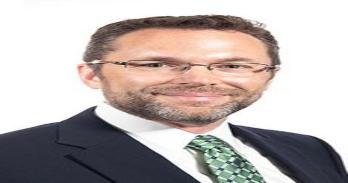 John Lach is the dean of the School of Engineering and Applied Science. He began the role in August 2019. Dr. Lach joined SEAS from the University of Virginia, where he served most recently as the director of cross-cutting initiatives at the university’s School of Engineering and Applied Science and as a professor of electrical and computer engineering in the Charles L. Brown Department of Electrical and Computer Engineering. He previously served as the chair of the department. He is associate director for Translational Research for the NSF Engineering Research Center (ERC) for Advanced Self-Powered Systems of Integrated Sensors and Technologies (ASSIST).
John Lach is the dean of the School of Engineering and Applied Science. He began the role in August 2019. Dr. Lach joined SEAS from the University of Virginia, where he served most recently as the director of cross-cutting initiatives at the university’s School of Engineering and Applied Science and as a professor of electrical and computer engineering in the Charles L. Brown Department of Electrical and Computer Engineering. He previously served as the chair of the department. He is associate director for Translational Research for the NSF Engineering Research Center (ERC) for Advanced Self-Powered Systems of Integrated Sensors and Technologies (ASSIST).
Throughout his career, Dr. Lach has worked extensively with departments, schools, and initiatives to foster cross-disciplinary collaboration that supports strategic priorities. As a researcher, he focuses on wireless technologies in health. His primary research interests are cyber-physical systems, embedded sensor systems, smart and connected health, and body sensor networks. He has been the principal investigator or co-principal investigator on more than 35 grants totaling over $57 million in research funding.
Dr. Lach received his Bachelor of Science degree from Stanford University and his Master of Science and Ph.D. degrees in electrical engineering from UCLA.
Vernice Miller-Travis, Executive Vice President and Social Justice Lead, Metropolitan Group
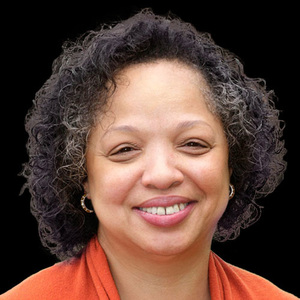 Vernice Miller-Travis is one of the nation’s pioneering and most respected thought leaders on environmental justice and the interplay of civil rights and environmental policy.
Vernice Miller-Travis is one of the nation’s pioneering and most respected thought leaders on environmental justice and the interplay of civil rights and environmental policy.
She has vast experience as a civil rights and environmental policy analyst and advocate; consultant for federal and state agencies, foundations and nonprofits; environmental program manager and foundation program officer.
She is a co-founder of We ACT for Environmental Justice and was a contributing author to the landmark report “Toxic Waste and Race in the United States.” This inspired her to go on to help build a social movement that is rooted at the intersection of race, environment, economics, social justice and public health. She was awarded the Robert Bullard Environmental Justice Award by The Sierra Club in 2018.
Vernice grew up in a bi-national family that was based in both the Bahamas and the historic Harlem community of New York City. She draws her strength from spending time with her family in the Bahamas, as well as from the local cuisine, magical beaches and 11 first cousins and their families. She loves to sing, cook for friends and family, paint, travel (before COVID-19) and engage in political debates.
Robin Morris Collin, Senior Advisor to the Administrator for Environmental Justice, U.S. Environmental Protection Agency
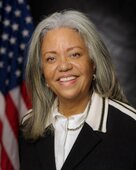 Robin Morris Collin serves as the EPA’s Senior Advisor to the Administrator for Environmental Justice. Collin is nationally recognized for her leadership and scholarship in the areas of sustainability, energy, and environmental justice. Her work and service demonstrate a unique ability to conceptualize contemporary challenges and develop equitable solutions with a broad perspective including law, government, and business partnerships at federal and state levels. She joins EPA’s senior leadership after 38 years as a professor of law at four major law schools: Tulane Law School, McGeorge School of Law, University of Oregon, and Willamette University College of Law with visitorships at Washington & Lee Law School and Pepperdine Law School. Most recently, she served as the Norma Paulus Professor of Law at Willamette University in Oregon
Robin Morris Collin serves as the EPA’s Senior Advisor to the Administrator for Environmental Justice. Collin is nationally recognized for her leadership and scholarship in the areas of sustainability, energy, and environmental justice. Her work and service demonstrate a unique ability to conceptualize contemporary challenges and develop equitable solutions with a broad perspective including law, government, and business partnerships at federal and state levels. She joins EPA’s senior leadership after 38 years as a professor of law at four major law schools: Tulane Law School, McGeorge School of Law, University of Oregon, and Willamette University College of Law with visitorships at Washington & Lee Law School and Pepperdine Law School. Most recently, she served as the Norma Paulus Professor of Law at Willamette University in Oregon
Collin was one of the first U.S. law professors to teach sustainability courses in a U.S. law school and served as founding chair of the State of Oregon’s Environmental Justice Task Force (2008), among other positions on local, state, and federal environmental justice organizations. She previously served on the Governor’s Racial Justice Council of Oregon as co-chair of the Environment and Equity Committee, Chair of the Oregon Commission for Women, and the Oregon Commission for Black Affairs. In the mid-1990s, she was selected as an EJ representative to the Common Sense Initiative, the first recognition of EJ as a stakeholder on a federal advisory committee. She also served on the National Advisory Council for Environmental Policy and Technology (NACEPT).
Her leadership style has received awards for her ability to reach different audiences and speak on common ground. She has been recognized as Oregon Woman of Achievement by her state legislature, Environmental Justice Achievement Award by US Environmental Protection Agency, Leadership Award by Oregon State Bar as founder of the Sustainable Futures section of the Bar, Judith Ramaley Award for Civic Engagement 2009, and the David Brower Lifetime Achievement Award 2002.
Ms. Collin comes from a family of academic and entrepreneurial achievers. Her great grandfather, an enslaved person, became a professor of math and Greek at Bennet College in North Carolina. Her father, John Payton Morris, founded the first and still only ocean-going vessel line, Red River Shipping Corporation of Maryland. He also was a founding professor of law at Arizona State College of Law.
Robin Morris Collin's presentation is available here.
Caroline Normile, Senior Policy Analyst, BPC Energy Program, Bipartisan Policy Center
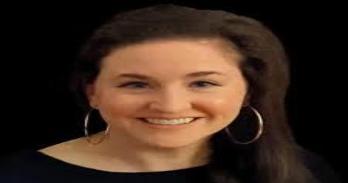 Dr. Caroline Normile is a Senior Policy Analyst for the BPC Energy Program. She brings more than ten years of quantitative research experience in the earth system and carbon cycle sciences. Prior to joining BPC, she served as a Principal Air Quality Specialist with the Bay Area Air Quality Management District, a regional government agency in California. In this role, she analyzed and interpreted atmospheric measurements in support of public health, environmental protection, and climate change mitigation.
Dr. Caroline Normile is a Senior Policy Analyst for the BPC Energy Program. She brings more than ten years of quantitative research experience in the earth system and carbon cycle sciences. Prior to joining BPC, she served as a Principal Air Quality Specialist with the Bay Area Air Quality Management District, a regional government agency in California. In this role, she analyzed and interpreted atmospheric measurements in support of public health, environmental protection, and climate change mitigation.
She served as the 2017–2018 Congressional Science Fellow in the Office of U.S. Senator Sheldon Whitehouse, sponsored by the American Meteorological Society and AAAS. During her fellowship, Caroline supported the Senate Task Force on Climate Change and advanced innovative bipartisan legislation related to carbon capture, utilization, and storage; renewable energy; aircraft greenhouse gas emissions; soil carbon sequestration; and the blue economy.
Dr. Normile completed her PhD as a NASA Earth and Space Science Graduate Fellow at Penn State University. Her doctoral research assessed land-atmosphere carbon exchange across North American terrestrial ecosystems. She also holds a Master’s degree in Atmospheric Science from Penn State and a Bachelor’s degree in Environmental Science from the University of Virginia.
Dr. Caroline Normile's presentation is available here.
Doug O'Brien, CEO, National Cooperative Business Association (CLUSA) International
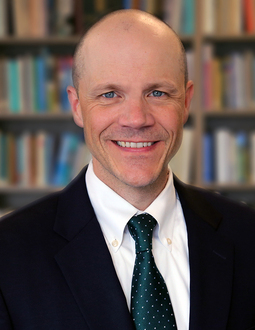 Doug O'Brien works with the cooperative community, both domestically and internationally, to deepen their impact and influence. NCBA is the primary voice for cooperatives in the United States for using the cooperative business model to empower people in their businesses and communities. Doug has been with NCBA since 2016 and became president and CEO in January 2018.
Doug O'Brien works with the cooperative community, both domestically and internationally, to deepen their impact and influence. NCBA is the primary voice for cooperatives in the United States for using the cooperative business model to empower people in their businesses and communities. Doug has been with NCBA since 2016 and became president and CEO in January 2018.
Before coming to NCBA CLUSA, Doug led the work of the White House Rural Council and served in top positions at the U.S. Department of Agriculture. Doug has also worked in the U.S. Senate, U.S. House and for two Governors. O'Brien's experience in academia includes teaching and writing at the University of Arkansas and Drake University Law School.
O’Brien was raised on a diversified farm in Dubuque County, Iowa, and holds degrees from Loras College (Dubuque, Iowa), the University of Iowa Law School, and the University of Arkansas Masters in Agricultural and Food Law Program. O’Brien lives in Takoma Park, Maryland, with his wife, Alisa and three children. He enjoys biking, travel, his memberships in a number of consumer co-ops and credit unions.
Edward R. Saltzberg, Co-Founder and Executive Director, Security and Sustainability Forum
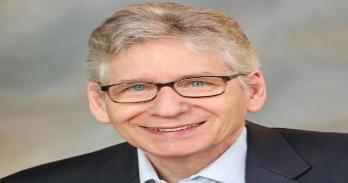 Edward R. Saltzberg, Ph.D., is a cofounder and Executive Director of SSF. He is President of ERS Advisors, a professional services firm that provides business acquisition and educational services to government contractors and environmental organizations. Ed is also the Director of Professional Education in the Environmental and Energy Management Institute at George Washington University’s School of Engineering and Applied Science. Previously, he was a corporate officer at Battelle Memorial Institute and Science Applications International Corporation and a partner in two environmental consulting firms sold to public companies.
Edward R. Saltzberg, Ph.D., is a cofounder and Executive Director of SSF. He is President of ERS Advisors, a professional services firm that provides business acquisition and educational services to government contractors and environmental organizations. Ed is also the Director of Professional Education in the Environmental and Energy Management Institute at George Washington University’s School of Engineering and Applied Science. Previously, he was a corporate officer at Battelle Memorial Institute and Science Applications International Corporation and a partner in two environmental consulting firms sold to public companies.
Janani Shankaran, Special Assistant, DC Department of Energy & Environment (DOEE)
 Janani Shankaran (she/her) is a federal policy advisor at the District of Columbia Department of Energy and Environment (DOEE), where she strategizes around how to leverage and maximize federal funding for DOEE’s climate and energy programs and monitors their implementation. Prior to DOEE, Janani served as an analyst at the Congressional Budget Office, where she worked closely with congressional committees on natural resources, public lands, and energy legislation and appropriations. Her previous work experience also includes urban and regional planning across communities in New Jersey and New York.
Janani Shankaran (she/her) is a federal policy advisor at the District of Columbia Department of Energy and Environment (DOEE), where she strategizes around how to leverage and maximize federal funding for DOEE’s climate and energy programs and monitors their implementation. Prior to DOEE, Janani served as an analyst at the Congressional Budget Office, where she worked closely with congressional committees on natural resources, public lands, and energy legislation and appropriations. Her previous work experience also includes urban and regional planning across communities in New Jersey and New York.
András Simonyi, former Hungarian Ambassador to the U.S. and NATO; current Nonresident Senior Fellow, Atlantic Council
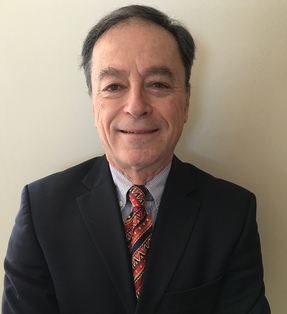 Ambassador András Simonyi, PhD, is a former Hungarian Ambassador to the United States (2002-2007) and former managing Director of the SAIS Center for Transatlantic Relations at Johns Hopkins University (2002-2018). He now serves as a Visiting Scholar at the George Washington University School of Engineering and Applied Science and a Senior fellow at the U.S. Atlantic Council. In addition, he is a Member of the Board of the Eurasia Foundation.
Ambassador András Simonyi, PhD, is a former Hungarian Ambassador to the United States (2002-2007) and former managing Director of the SAIS Center for Transatlantic Relations at Johns Hopkins University (2002-2018). He now serves as a Visiting Scholar at the George Washington University School of Engineering and Applied Science and a Senior fellow at the U.S. Atlantic Council. In addition, he is a Member of the Board of the Eurasia Foundation.
During his tenure, the US-Hungary relationship rose to unprecedented levels. He was the first Hungarian Ambassador to NATO, becoming the first Permanent Representative of Hungary on the North Atlantic council (1994-2001).
Ambassador Simonyi is a transportation economist by training, with a PhD in International Affairs. In his academic work he specializes in transatlantic security, transatlantic energy security and the Nordic countries. Ambassador Simonyi has been a proponent and a practitioner of soft-power in diplomacy and sees western soft power as a strategic asset to be deployed in combination with hard power. He has published numerous studies and articles on the subject, including editing the book “The Nordic Way” published in Washington (2016) by Brookings.
His memoir “Rocking Toward a Free World” was published in the United States [Hatchett, 2019].
Ambassador Simonyi is an American and Hungarian citizen, although he currently lives and works in Washington, DC. His knowledge of languages include Hungarian, English, Danish, Dutch and German. He is married and has two children and four grandchildren.
Scott Sklar, President, The Stella Group, Ltd.
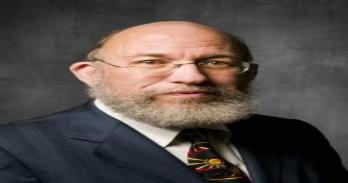 Scott Sklar is President of The Stella Group, Ltd. since 2000, a global clean global technology owner’s rep firm facilitating optimization of clean distributed energy utilization and technology integration primarily for commercial, industrial, institutional, infrastructure and local government. Sklar is also an Adjunct Professor at The George Washington University (GWU) teaching three unique interdisciplinary courses on sustainable energy and Sklar serves as the Sustainable Energy Director of GWU’s Environment & Energy Management Institute (EEMI) - https://eemi.seas.gwu.edu/ Prior, Scott Sklar served for 15 years 1985-2000) simultaneously running two Washington, DC-based trade associations, as Executive Director of both the Solar Energy Industries & the National BioEnergy Industries Associations. Before he was Political Director of The Solar Lobby, a clean advocacy organization founded by the nine major national environmental organizations. Prior, he was Washington Director & Acting Research Director of for three years at the National Center for Appropriate Technology (NCAT). Sklar began his energy career as an aide for 10 years (1970-80) to Senator Jacob K. Javits (NY) where he focused on energy and military matters. During his Senate tenure, he cofounded the Congressional Solar Caucus that lead much of the innovative legislation promoting renewable energy in the 1970’s. Scott Sklar serves on the Board of Directors of the Business Council for Sustainable Energy. Scott Sklar lives in a self-powered solar home in Arlington, Virginia with solar water heating, geothermal heating & cooling, and a photovoltaics/battery system (which also fully charges his 2022 EV). The Stella Group, Ltd. has a zero energy 2-story VA office building with PV roofing shingles, small wind turbine, a hydrogen fuel cell tied to a battery bank. Sklar has co-authored two books, written peer-reviewed papers, and publishes several articles yearly.
Scott Sklar is President of The Stella Group, Ltd. since 2000, a global clean global technology owner’s rep firm facilitating optimization of clean distributed energy utilization and technology integration primarily for commercial, industrial, institutional, infrastructure and local government. Sklar is also an Adjunct Professor at The George Washington University (GWU) teaching three unique interdisciplinary courses on sustainable energy and Sklar serves as the Sustainable Energy Director of GWU’s Environment & Energy Management Institute (EEMI) - https://eemi.seas.gwu.edu/ Prior, Scott Sklar served for 15 years 1985-2000) simultaneously running two Washington, DC-based trade associations, as Executive Director of both the Solar Energy Industries & the National BioEnergy Industries Associations. Before he was Political Director of The Solar Lobby, a clean advocacy organization founded by the nine major national environmental organizations. Prior, he was Washington Director & Acting Research Director of for three years at the National Center for Appropriate Technology (NCAT). Sklar began his energy career as an aide for 10 years (1970-80) to Senator Jacob K. Javits (NY) where he focused on energy and military matters. During his Senate tenure, he cofounded the Congressional Solar Caucus that lead much of the innovative legislation promoting renewable energy in the 1970’s. Scott Sklar serves on the Board of Directors of the Business Council for Sustainable Energy. Scott Sklar lives in a self-powered solar home in Arlington, Virginia with solar water heating, geothermal heating & cooling, and a photovoltaics/battery system (which also fully charges his 2022 EV). The Stella Group, Ltd. has a zero energy 2-story VA office building with PV roofing shingles, small wind turbine, a hydrogen fuel cell tied to a battery bank. Sklar has co-authored two books, written peer-reviewed papers, and publishes several articles yearly.
Scott Sklar's presentation is available here.
Daniela Stevens, Director, Energy, Climate Change & Extractive Industries Program, Inter-American Dialogue
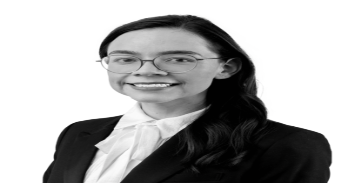 Daniela Stevens is director of the Energy, Climate Change & Extractive Industries Program at the Inter-American Dialogue. Before joining the Dialogue, Stevens was assistant professor at the Center for Research and Teaching in Economics (CIDE) in Mexico City. Prior to that, Stevens was a research fellow at Yale University, where she performed research on coalition-building in Latin America, and energy reform in Mexico. Stevens has published widely in specialized environmental and climate journals, such as Global Environmental Politics by MIT Press, and written opinion pieces for Nexos and commentary for El Universal. A Mexican national, Stevens has experience in the local and federal public administrations. She holds a PhD in Comparative Politics from the School of Public Affairs at American University.
Daniela Stevens is director of the Energy, Climate Change & Extractive Industries Program at the Inter-American Dialogue. Before joining the Dialogue, Stevens was assistant professor at the Center for Research and Teaching in Economics (CIDE) in Mexico City. Prior to that, Stevens was a research fellow at Yale University, where she performed research on coalition-building in Latin America, and energy reform in Mexico. Stevens has published widely in specialized environmental and climate journals, such as Global Environmental Politics by MIT Press, and written opinion pieces for Nexos and commentary for El Universal. A Mexican national, Stevens has experience in the local and federal public administrations. She holds a PhD in Comparative Politics from the School of Public Affairs at American University.
David Terry, President, National Association of State Energy Officials
 David Terry is the President of the National Association of State Energy Officials and has worked with NASEO in a variety of capacities since 1996. Mr. Terry leads NASEO's policy actions and programs in support of the 56 governor-designated state and territory energy directors and their offices. NASEO communicates the states' views on virtually all national energy issues. Mr. Terry has participated in governor-led policy meetings, testified before U.S. Congressional Committees and presented at White House and international energy forums. Mr. Terry has 25 years of experience working on a range of energy issues for such organizations as the Governors’ Wind and Solar Energy and Coalition and Energy Services Coalition. Prior to working in the energy area, Mr. Terry was researcher at the National Academy of Sciences and a statistical analyst for a consumer products market research firm. He received a BA degree from Bowling Green State University, Bowling Green, Ohio, and he has completed graduate coursework in statistics and marketing at Virginia Tech, Blacksburg, Virginia.
David Terry is the President of the National Association of State Energy Officials and has worked with NASEO in a variety of capacities since 1996. Mr. Terry leads NASEO's policy actions and programs in support of the 56 governor-designated state and territory energy directors and their offices. NASEO communicates the states' views on virtually all national energy issues. Mr. Terry has participated in governor-led policy meetings, testified before U.S. Congressional Committees and presented at White House and international energy forums. Mr. Terry has 25 years of experience working on a range of energy issues for such organizations as the Governors’ Wind and Solar Energy and Coalition and Energy Services Coalition. Prior to working in the energy area, Mr. Terry was researcher at the National Academy of Sciences and a statistical analyst for a consumer products market research firm. He received a BA degree from Bowling Green State University, Bowling Green, Ohio, and he has completed graduate coursework in statistics and marketing at Virginia Tech, Blacksburg, Virginia.
David Turk, Deputy Secretary, U.S. Department of Energy
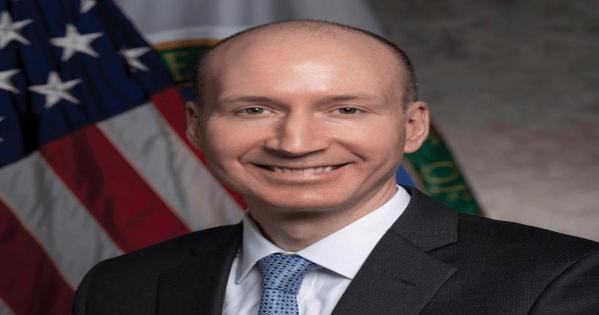 David Turk has served as Deputy Secretary for Energy at the U.S. Department of Energy since 2021. Prior to his nomination as Deputy Secretary, Turk was the Deputy Executive Director of the International Energy Agency (IEA), where he focused on helping countries around the world tackle their clean energy transitions. He also directed reports on the digitalization of energy systems, the future of clean hydrogen, and a project tracking progress on a wide range of clean energy technologies.
David Turk has served as Deputy Secretary for Energy at the U.S. Department of Energy since 2021. Prior to his nomination as Deputy Secretary, Turk was the Deputy Executive Director of the International Energy Agency (IEA), where he focused on helping countries around the world tackle their clean energy transitions. He also directed reports on the digitalization of energy systems, the future of clean hydrogen, and a project tracking progress on a wide range of clean energy technologies.
During the Obama-Biden Administration, Turk coordinated international technology and clean energy efforts at DOE. During this time, he helped spearhead the launch of Mission Innovation—a global effort to enhance clean energy innovation.
Turk also served as Special Assistant to the President and Senior Director at the U.S. National Security Council, where he coordinated interagency legislative affairs efforts by the full range of national security agencies and provided legislative advice to National Security Council decision-making. He also previously worked at the U.S. Department of State, including as Deputy Special Envoy for Climate Change and helping to coordinate New Start Treaty ratification efforts in the U.S. Senate.
Earlier in his career, Turk worked in both the U.S. Senate, primarily on national security issues, and as the Staff Director of the National Security Subcommittee of the House Oversight Committee.
Turk was born in Quito, Ecuador and raised in Rock Falls, Illinois. He is a graduate of both the University of Illinois at Urbana-Champaign and the University of Virginia Law School. He and his wife, Emily Turk, have three children.
Candace Vahlsing, Associate Director for Climate, Energy, Environment, and Science, Office of Management and Budget
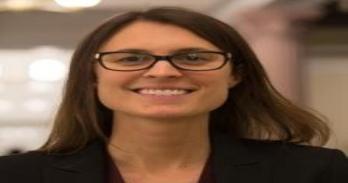 Candace Vahlsing is Associate Director for Climate, Energy, Environment and Science(CEES) in the Office of Budget and Management. She most recently led climate, energy, environment, and natural resources policy for the Domestic and Economic Policy team on the Biden-Harris Transition. In the Obama-Biden administration, she served as a Senior Policy Advisor for Energy and Climate Change at the Domestic Policy Council, supported the National Security Council on climate matters, and earlier worked at the Council on Environmental Quality. In the 115th and 116th Congress, Candace was a Senior Advisor to U.S. Senator Michael F. Bennet and the Minority Staff Director for the U.S. Senate Finance Subcommittee for Energy, Natural Resources, and Infrastructure. Most recently, Candace was a Senior Advisor for Science and Technology Policy to the Chair of the California Air Resources Board, the agency charged with leading California’s climate policy.
Candace Vahlsing is Associate Director for Climate, Energy, Environment and Science(CEES) in the Office of Budget and Management. She most recently led climate, energy, environment, and natural resources policy for the Domestic and Economic Policy team on the Biden-Harris Transition. In the Obama-Biden administration, she served as a Senior Policy Advisor for Energy and Climate Change at the Domestic Policy Council, supported the National Security Council on climate matters, and earlier worked at the Council on Environmental Quality. In the 115th and 116th Congress, Candace was a Senior Advisor to U.S. Senator Michael F. Bennet and the Minority Staff Director for the U.S. Senate Finance Subcommittee for Energy, Natural Resources, and Infrastructure. Most recently, Candace was a Senior Advisor for Science and Technology Policy to the Chair of the California Air Resources Board, the agency charged with leading California’s climate policy.
Jason Ye, Director, U.S. Policy and Outreach, Center for Climate and Energy Solutions (C2ES)
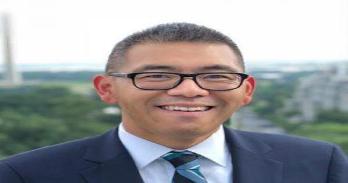 Jason Ye is Director for U.S. Policy and Outreach at the Center for Climate and Energy Solutions (C2ES), where he researches, analyzes, and develops strategies and solutions for climate change and energy issues. Since joining C2ES, Mr. Ye has worked in the intersecting areas of policy, markets and business, and technology. His responsibilities have included: tracking and analyzing legislative proposals and regulatory action; creating and maintaining user-friendly federal policy web content; managing C2ES’s corporate energy efficiency initiative; and examining how federal agencies are using information and communications technology (ICT) to perform their functions in a leaner, more efficient, and sustainable manner.
Jason Ye is Director for U.S. Policy and Outreach at the Center for Climate and Energy Solutions (C2ES), where he researches, analyzes, and develops strategies and solutions for climate change and energy issues. Since joining C2ES, Mr. Ye has worked in the intersecting areas of policy, markets and business, and technology. His responsibilities have included: tracking and analyzing legislative proposals and regulatory action; creating and maintaining user-friendly federal policy web content; managing C2ES’s corporate energy efficiency initiative; and examining how federal agencies are using information and communications technology (ICT) to perform their functions in a leaner, more efficient, and sustainable manner.
Before joining C2ES, Mr. Ye led a practicum team for the World Wildlife Fund’s “China for SHIFT” campaign aimed at identifying, assessing, and developing business and market-based sustainability initiatives for e-waste to help reduce China’s carbon footprint and preserve biodiversity in key areas.
Mr. Ye has a Master of Arts in international relations and international economics – concentrating in energy, resources, and the environment – from the Johns Hopkins School of Advanced International Studies (SAIS), and a Bachelor of Arts in political science and history from the University of California, San Diego.